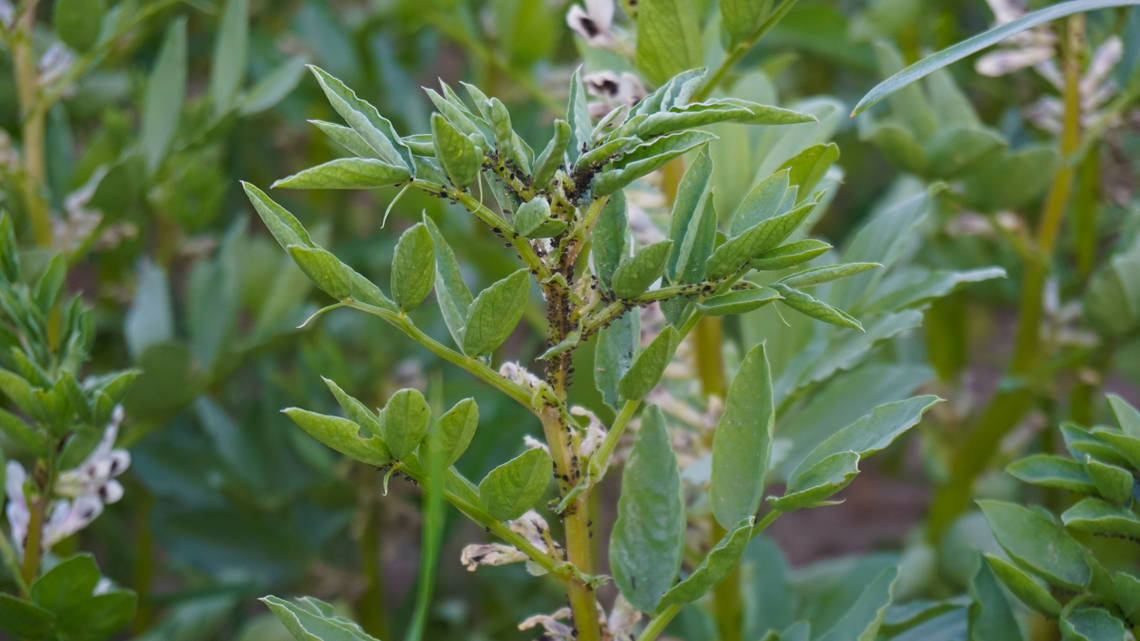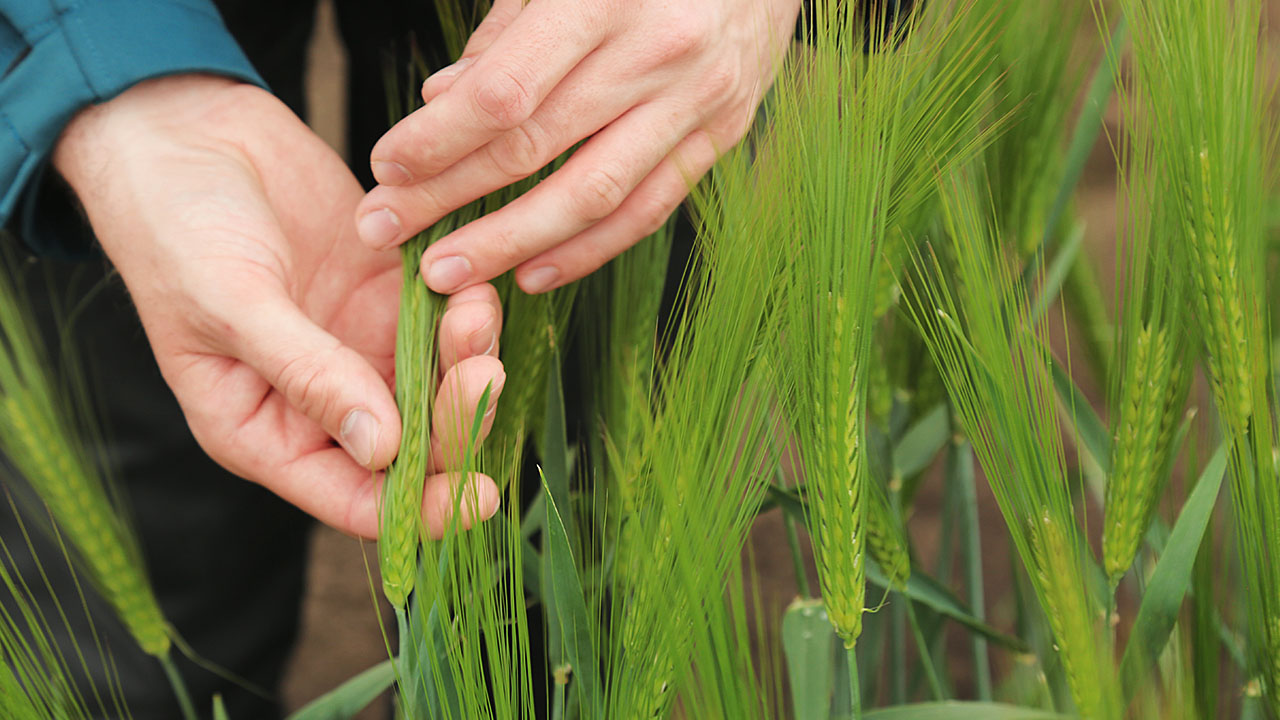Making agricultural systems more ecological
A Franco-German research project is investigating how efficient agriculture could largely do without chemical-synthetic crop protection.

Plant pests and infectious diseases destroy large parts of agricultural harvests every year. The losses would be even greater if there were no chemical-synthetic pesticides. But they also have their downsides: “Too high a dosage can lead to contamination of the groundwater and deterioration in soil fertility," explains Frank Ewert, Scientific Director of the Leibniz Centre for Agricultural Landscape Research (ZALF).
“In addition, more and more scientific studies indicate that the use of pesticides can negatively affect biodiversity and human health, particularly if used inappropriately and their combined effects are still not well understood.”
From an idea to a roadmap
Last year, a ZALF team, together with researchers from the Julius Kühn Institute (JKI) and the French National Institute of Agricultural Sciences (INRA), developed a research strategy aimed at developing an agricultural system that largely does without chemical-synthetic crop protection. Now the partners have drawn up a strategy paper and a roadmap - because a ban overnight would pose major problems for agriculture and therefore cannot be the solution.
Better understanding of agroecological interrelationships
“We still know too little about the complex interactions and interrelationships in the landscape-agriculture system to be able to make comprehensive recommendations from science to farmers, politicians and society for substantially reducing the use of pesticides," explains Ewert. Despite good and valuable findings from individual studies, there is a lack of understanding of the overall system and the complex ecological and socio-economic interrelationships.
“We want to make better use of the agro-ecological relationships in the landscape in order to develop more disease-resistant production systems”, says Prof. Ewert. “An example of such an interrelationship would be to use beneficial insects, such as ladybirds, rather than pesticides to control pests such as aphids.” The interaction between plants, insects and soils must also be better understood, as must the factors that influence species diversity.
Important contribution of plant research
In addition to agroecology, plant research will also play a central role. "Resistant varieties are the most environmentally friendly form of plant protection," stresses JKI President Frank Ordon. "Molecular marker techniques as well as knowledge of the genome sequence of many of our cultivated species will allow an accelerated identification of resistance genes and their breeding use in the future. The targeted use of genetic diversity stored in gene banks is of particular importance in the context of improving resistance characteristics in breeding," continued Ordon. Last but not least, the role of digitisation in agriculture should also be taken into account.
Ewert sums up the potential of this extraordinary Franco-German research initiative as follows: "European agricultural research could play a pioneering role worldwide and, together with politics and practice, could not only develop crop production systems that are climate and environmentally friendly, but also new innovative products, technologies and services for sustainable agriculture in the 21st century."
bl/siw


